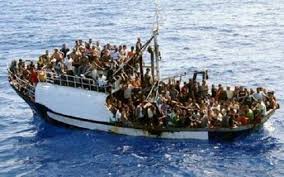The United Nations on Friday hailed a European Union plan to distribute 160,000 refugees around the continent, but warned it would not be enough and tens of thousands more places are needed.
The United Nations on Friday hailed a European Union plan to distribute 160,000 refugees around the continent, but warned it would not be enough and tens of thousands more places are needed.
UN refugee chief Antonio Guterres called last week on European countries to take around 200,000 refugees by the end of the year as part of a "massive relocation program".
"The proposed relocation scheme for 160,000 refugees from Greece, Italy and Hungary would go a long way to address the crisis," UNHCR spokesman William Spindler told reporters Friday, warning though that "our initial estimates indicate even higher needs."
Eastern European countries have balked at the EU quota plan, but UNHCR insisted it could only work if all the member countries took part.
It also said more was needed to relieve pressure on frontline states, calling for "large-scale emergency reception, assistance and registration efforts in the countries most impacted by arrivals."
UNHCR earlier this week appealed to donors for $30.5 million (27.1 million euros) to help it address the refugee crisis in Europe through 2016, estimating that some 400,000 people will have crossed the Mediterranean by the end of this year, and another 450,000 will do so next year.
Europe is struggling to cope with the worst refugee crisis since World War II, with more than 380,000 migrants and refugees having crossed the Mediterranean since January. Around 2,850 have perished trying.
Half of all crossings so far this year have been made by people fleeing Syria's devastating civil war, which after four and a half years has claimed 240,000 lives.
A full 70 percent of the people landing on the Greek islands -- around 3,000 a day -- are Syrians, according to UNHCR.
And with the situation in Syria and the surrounding region deteriorating, far more are likely to come, warned Peter Salama, head of the UN children's agency's Middle East and North Africa division.
"Especially for the children, it is becoming a living hell," he told reporters in Geneva by phone from New York.
He pointed out that some eight million people are displaced within Syria living in horrendous conditions, while more than four million Syrian refugees are living in neighboring countries, with rapidly dwindling aid budgets to support them.